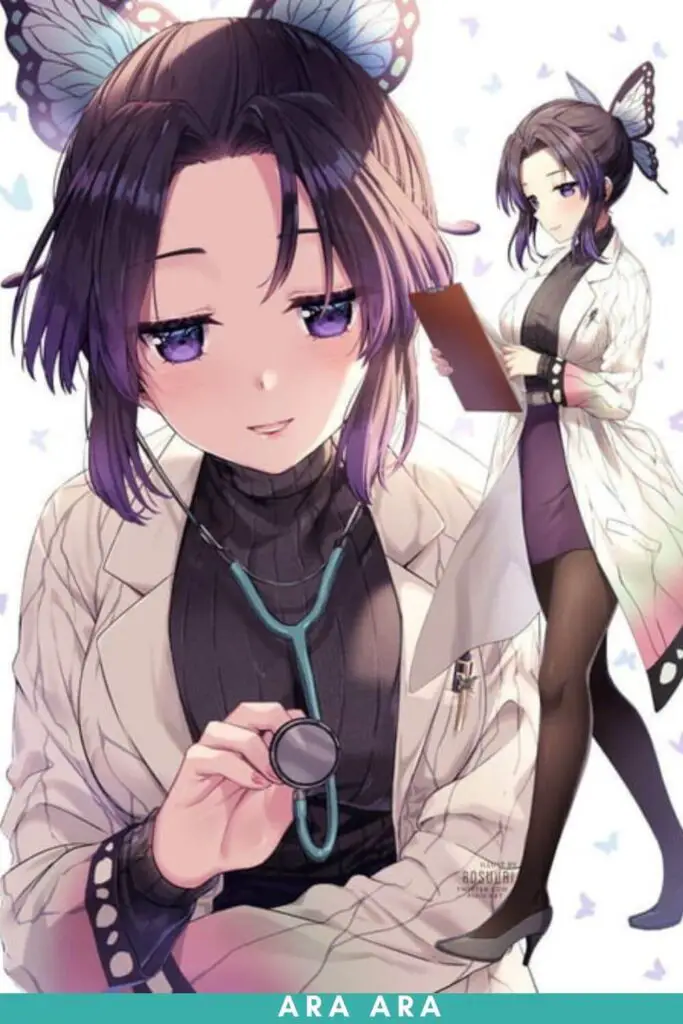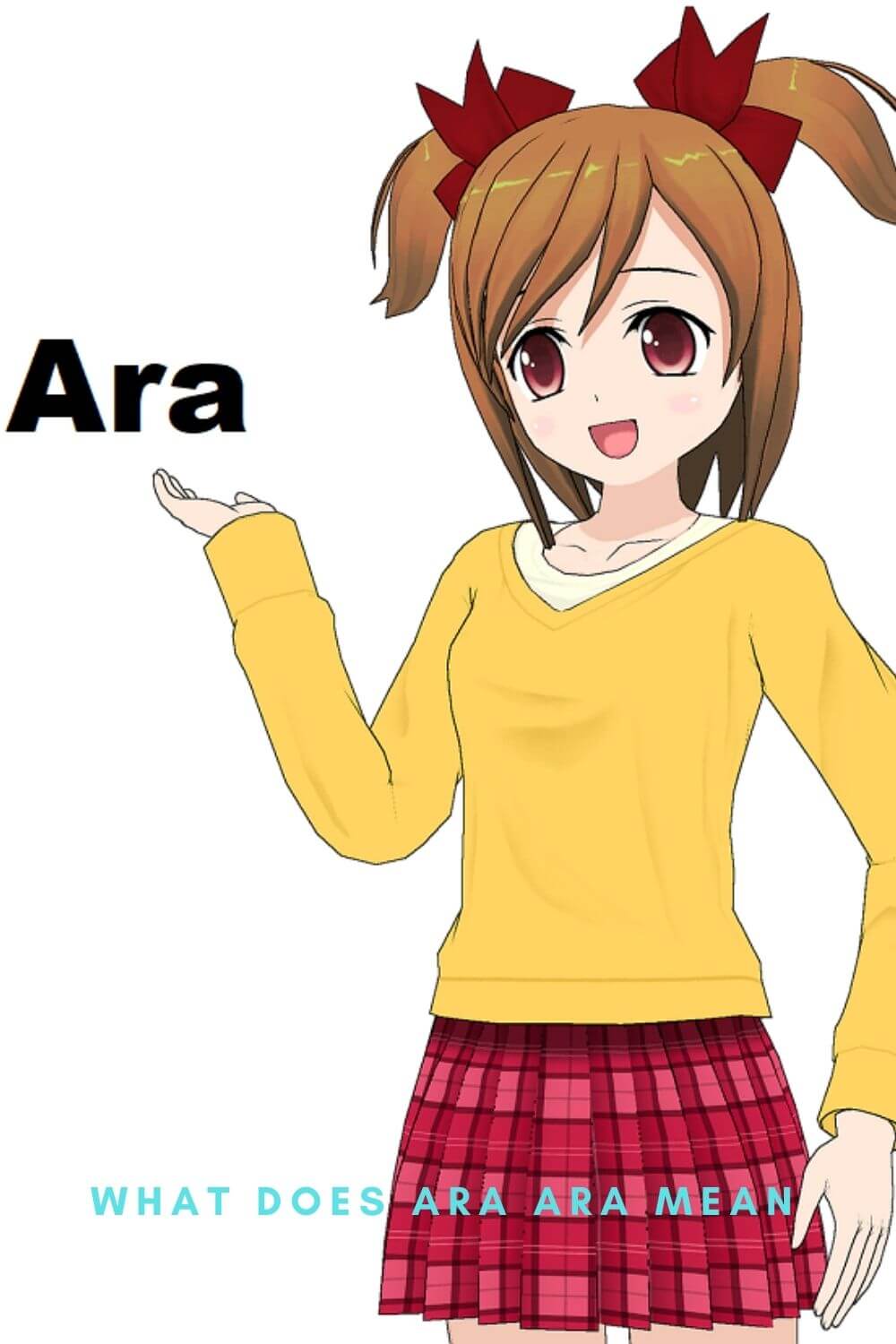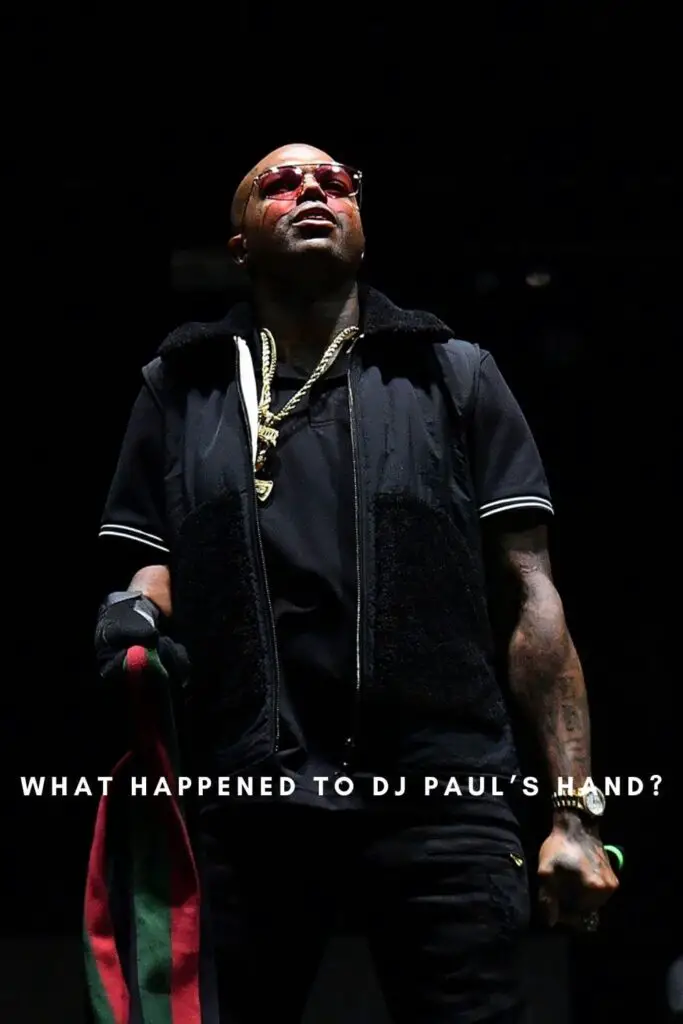Japanese animation movies have been trending for quite some time, and “ara ara” is no exception. The phrase has recently taken over Social Media, with TikTok leading in the trend.

One of the reasons for this could be that “ara ara” sounds very similar to “Alala”, which means “goodbye” in Japanese. It is possible that people are using it as an expression instead of “alala.
It has become popular on the internet, mostly through videos of people doing funny poses. What does it even mean? Why and how did it get so popular? We have all the answers.
Ara Ara Meaning
The Japanese phrase “Ara Ara” is used to express surprise. When compared to other English phrases, it is similar to “Oh no!”, “Oh my!”, and “My My”, “Oh dear!” or “Oh me, oh my.” The word is often translated as “chichi-guchi” which means “hmm…”.
This phrase is mainly used by females and the tone of voice can change to show surprise, compassion, affection, or disapproval. Ara ara is sometimes said as a form of greeting and goodbye.
It can also be used to express concern or commiserate with others about their troubles. However, Ara, ara is typically used as an expression of sympathy when someone has just found out that something bad has happened to them.
How did ara ara become popular?
Anime, a style of animation out of Japan, has become popularized as an English phrase through its common use in both anime and manga. According to Merriam-Webster, the word “anime” is defined as: “
Japanese animation featuring human characters with a stylized appearance.” The animated characters don’t have large eyes or noses, unlike those from Disney productions. This style of drawing features large heads and slender bodies with big round eyes.
Per Merriam-Webster, anime is a style of animation out of Japan. It’s commonly used as a form of expression to indicate surprise or disbelief. The expression first gained international popularity when it was used as a catchphrase by the main character called Takeshi from the Japanese manga series Doraemon.
According to the Japanese culture has always been in the limelight in North America. However, in the 1990s, when Pokémon became a huge phenomenon, the West began to identify Japanese animation as something different. Contrary to popular belief, the word ‘ara ara’ is not actually Japanese.
The sound is an imitation of onomatopoeia for laughter in Japanese anime. Anime shows are becoming more popular in Western culture with the success of shows like Naruto and One Piece, which have been translated to English.
Unfortunately, some people see anime as a childish show for adults. Japanese social media website, 2chan, is where the derogatory term “otaku” was created. It is considered rude in Japan to be referred to as an “otaku” or obsessive fan of something.
Where can ara ara be seen in popular culture?
Ara ara is the sound that ninjas make in anime. Ara ara can also refer to the sound made by someone when they are flustered, embarrassed, or otherwise unnerved. Where can you see this in modern media? Well, it’s mostly seen in anime and manga.
In Date, A Live, the villain character Kurumi Tokisaki uses ara ara frequently when she talks with protagonist Shido Itsuka. And also Numerous modern fictional works have featured the act of ara ara.
Ara ara is most commonly seen in anime and manga, but can also be found in video games, movies, TV shows, and even Western literature.
The most famous example is possibly Date A Live, where villain character Kurumi Tokisaki uses the power to conjure objects that she has killed before. These objects are not just limited to humans either; they include animals as well.
Ara ara is commonly associated with “shotacon,” in anime. According to Definitions.net, This phrase refers to the Shotaro complex, which describes the idea that young boys are more interested in older males than females of their own age group due to the fact that they represent some form of father figure or male role model.
The term originates from Japan and can be found in other forms of media besides anime, such as manga and doujinshi.
What are synonyms for ara ara?
If you are ever in the mood to exclaim something like “oh, my,” or “my, my,” there are various ways to express your excitement in Japanese.
One such way is the word ara ara, which does not have an English translation, but can be translated into two different meanings. For example, ara ara could mean “oh no!
Overall, the Japanese phrase ara ara is often translated to “oh my” or “my my” in English, but it has many meanings and nuances that people should be very careful about when using with others.
The sentence should consist of 5 sentences and the introduction paragraph should include: what the Japanese phrase means, what the phrase really means, and why people should be careful when using it.
Read:





